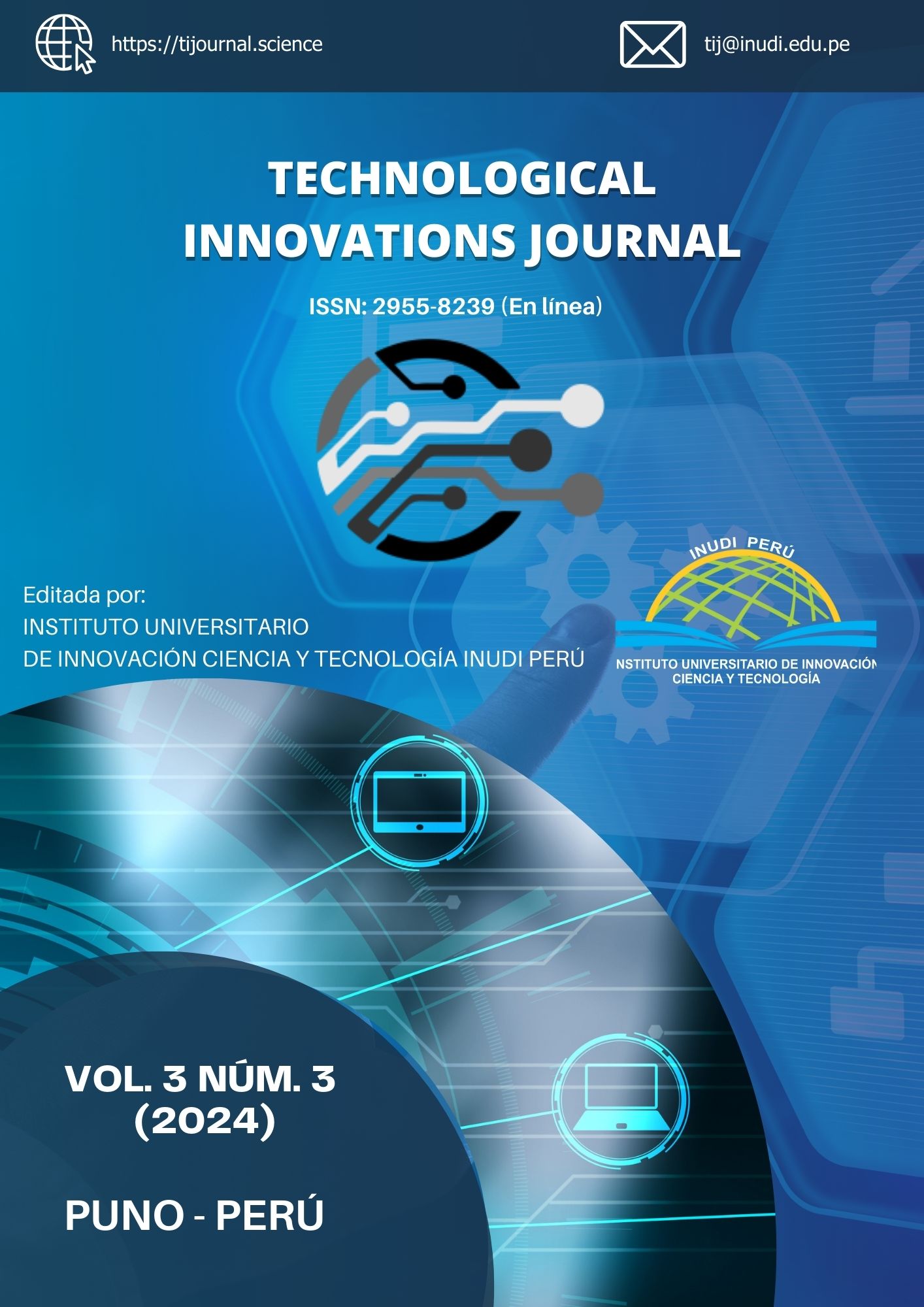Workplace well-being assessment of the administrative staff at Universidad Hipócrates (Mexico)
DOI:
https://doi.org/10.35622/j.ti.2024.03.003Keywords:
quality of work life, university, work productivity, workerAbstract
Workplace well-being represents a fundamental pillar for the sustainability of organizations; it is a commitment for the human resources area to understand the situation of its collaborators to ensure continuous improvement and favorable working environments. The aim of this article is to measure the workplace well-being of employees at Universidad Hipócrates (Mexico). The approach was quantitative, non-experimental, and cross-sectional, using a probabilistic sample of 83 workers from different departments of the institution. The Work-Related Quality of Life scale instrument was applied. The results identified positive levels, ranging from high to moderate across the six dimensions that comprise workplace well-being (general well-being – high; home-work interface – moderate; job and professional satisfaction – high; control at work – high; working conditions – high; work-related stress – high), which demonstrates the need to implement policies that improve job satisfaction and thereby strengthen the performance of those involved in the organization.
References
Castillo, C., F. R., Gerónimo C, G. I., Casillas S., M. A., Acuña C., P. A., y Palma B. R. R. (2024). Motivación laboral y rentabilidad empresarial en los millennials y centennials. [Tesis de maestría, Pontificia Universidad Católica del Perú]. http://hdl.handle.net/20.500.12404/28123
Clavijo, L. M. L. (2023). El clima laboral docente y su importancia en el proceso de enseñanza. Ciencia Latina Revista Científica Multidisciplinar, 7(2). https://doi.org/10.37811/cl_rcm.v7i2.6050 DOI: https://doi.org/10.37811/cl_rcm.v7i2.6050
Cruz, S. I. (2018). Ambientes de trabajo saludable, un camino al rendimiento en la productividad de las empresas [Trabajo de especialización, Universidad Militar Nueva Granada]. http://hdl.handle.net/10654/20369
Díaz, M., & Quintana, L. (2021). La gestión del talento humano y su influencia en la productividad de la organización. Gestión Joven: Revista de la Agrupación Joven Iberoamericana de Contabilidad y Administración de Empresas (AJOICA), 22(1), 29-48. https://dialnet.unirioja.es/servlet/articulo?codigo=7984628
Domínguez-Aguirre, L. R., Lozano-Jiménez, I., y Ramírez-Campos, Álvaro F. (2020). El rol del conflicto trabajo-familia en la relación del clima organizacional y las intenciones de salida. Cuadernos De Gestión, 20(3), 87–97. https://doi.org/10.5295/cdg.181004ld DOI: https://doi.org/10.5295/cdg.181004ld
Easton, S. & Van Laar, D. (2012). User manual of the Work-Related Quality of Life (WRQoL) Scale: A Measure of Quality of Working Life. University of Portsmouth.
Edwards, J. A., Van Laar, D., Easton, S., & Kinman, G. (2009). The Work‐related Quality of Life Scale for Higher Education Employees. Quality in Higher Education, 15(3), 207–219. https://doi.org/10.1080/13538320903343057 DOI: https://doi.org/10.1080/13538320903343057
Espinoza, C. S. N. (2021). Satisfacción laboral y productividad en la empresa Telecomunicaciones Josol EIRL – 2019. [Trabajo de grado, Universidad Señor de Sipán].
Gonzáles, J. L. A., Gallardo, M. R. C., y Chávez, M. C. (2020). Formulación de los objetivos específicos desde el alcance correlacional en trabajos de investigación. Ciencia Latina Revista Científica Multidisciplinar, 4(2), 237-247. https://doi.org/10.37811/cl_rcm.v4i2.73 DOI: https://doi.org/10.37811/cl_rcm.v4i2.73
Hernández, O. (2024). Análisis de las Políticas de Bienestar Laboral y su Impacto en la Comunidad Universitaria en el Rosario, Sinaloa, México. Revista Científica Profundidad Construyendo Futuro, 21(21), 140–149. https://doi.org/10.22463/24221783.467 DOI: https://doi.org/10.22463/24221783.4676
Jiménez, L. (2020). Impacto de la investigación cuantitativa en la actualidad. Convergence Tech. DOI: https://doi.org/10.53592/convtech.v4iIV.35
Kelliher, C., & Anderson, D. (2010). Doing more with less? Flexible working practices and the intensification of work. Human Relations, 63(1), 83-106. DOI: https://doi.org/10.1177/0018726709349199
Locke, E. A., & Latham, G. P. (2002). Building a practically useful theory of goal setting and task motivation: A 35-year odyssey. American Psychologist, 57(9), 705–717. DOI: https://doi.org/10.1037//0003-066X.57.9.705
Martínez Valdez, R. I., Segovia Romo, A., & Pérez Martínez, K. S. (2022). El impacto del home office y el balance de vida y trabajo en la retención de personal de la Generación Y durante el covid-19. Vinculatégica EFAN, 7(2), 113–124. https://doi.org/10.29105/vtga7.1-88 DOI: https://doi.org/10.29105/vtga7.1-88
Osorio, C. C., & Ponce, Z. H. (2022). Impacto del síndrome de Burnout en el balance trabajo-familia, una mirada documental. Gestión de la Seguridad y Salud en el Trabajo, 4(5), 62-66. https://journal.poligran.edu.co/index.php/gsst/issue/archive DOI: https://doi.org/10.15765/gsst.v4i5.3060
Rodríguez, M. C., & Dabos, G. E. (2016). Gestión individual del equilibrio entre el trabajo y la vida personal: revisión e integración de la literatura. Revista Facultad De Ciencias Económicas, 25(1), 219–242. https://doi.org/10.18359/rfce.1055 DOI: https://doi.org/10.18359/rfce.1055
Sandoval, S., Armijos, D., y González, K. (2018). La comunicación del talento humano en la productividad empresarial. INNOVA Research Journal, 3(8.1), 167–175. https://doi.org/10.33890/innova.v3.n8.1.2018.760 DOI: https://doi.org/10.33890/innova.v3.n8.1.2018.760
Downloads
Published
Issue
Section
License
Copyright (c) 2024 Ramsés Rodríguez-Montes, Bernardo Vázquez-Ponce, Irma Baldovinos-Leyva (Autor/a)

This work is licensed under a Creative Commons Attribution 4.0 International License.











